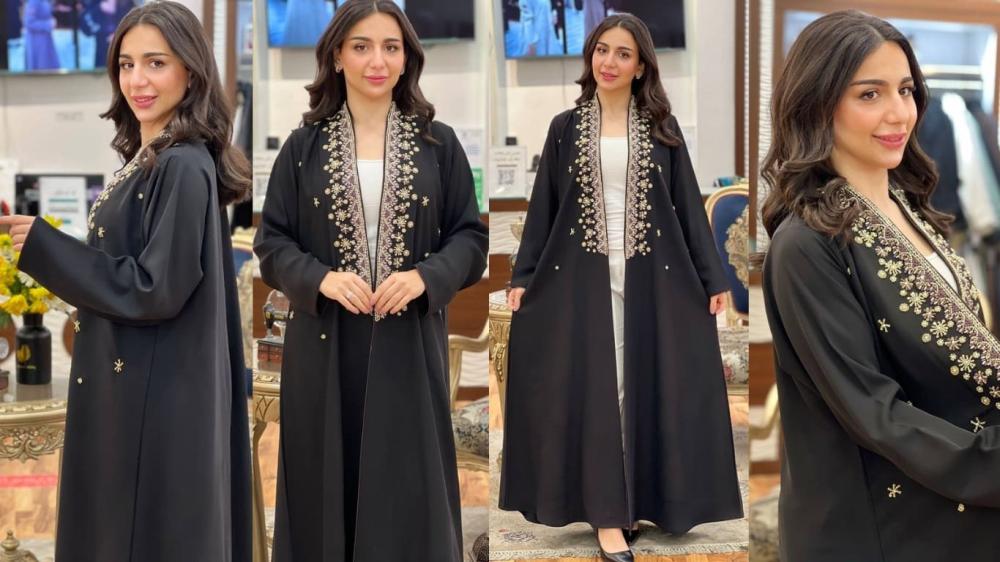The best black abaya fabrics
It may be easy to find high-quality black abaya fabrics, but it is difficult to find high-quality, dark black abaya fabrics. The problem with buying black fabrics is that they can fade and change color with washing and use. Therefore, the biggest challenge may be finding a fabric that is both dark black and highly durable and does not fade or change color over time.
First, how do you dye fabric black?
Dyeing abaya fabrics black is one of the most important stages in the abaya fabric manufacturing process. To ensure the black color remains on the fabric, the fibers can be dyed and colored very precisely. The appropriate dye is chosen for the appropriate type of fiber. The abaya fabric dyeing process goes through several stages, starting with preparing the fibers, then purifying them, and then washing them to prepare them for the black dyeing process.
Second: How to fix black color to fabric:
Each type of fiber has its own specific dyeing and color fixation method. For plant fibers such as cotton and linen, tannic acid is used to fix the color. For animal fibers such as silk and wool, anionic dyeing is used. For synthetic fibers such as polyester (from which crepe fabric for abayas is made), cationic dyeing is used. This dye works by creating attractive areas with the negative dye molecules, thus increasing the affinity of the dye fibers and enhancing color fastness.
Third: Types of dark black abaya fabrics:
1- Japanese Raghad fabric:
A luxurious Japanese-made fabric, distinguished by its deep black color, which is very striking. It is used for abayas, jalabiyas, and other high-end fabrics. It is characterized by a soft texture and is comfortable to wear. It is light and cool in the summer, but is not transparent. It is a fabric that does not wrinkle easily and may not require ironing. It is one of the distinctive materials available at Al-Amari Fabrics.
Fabric link here.
2- Japanese Mikage 320 and Mikage 560 fabric:
Mikaji is a type of fabric made from a completely new fabric called Mikaji, using a new Japanese thread technology that is characterized by reinforcing the black color in the fabric, so that its color does not fade or change with washing or repeated use, giving it a rich and luxurious color, making it suitable for luxurious and elegant abayas. It is a high-quality, incomparable fabric with a soft texture and light weight, and does not see through or wrinkle easily. Mikaji 320 differs from Mikaji 560 in that it is lighter. Simply put, Japanese Mikaji fabric is the best for making luxurious Gulf abayas.
3- Korean Royal Super Plus Crepe
Royal crepe fabric has been developed using special super micro threads, which give the fabric an extra softness and blackness while maintaining its unique weaving method and overall appearance. Royal crepe super plus has become one of the best and most popular crepe fabrics at Al Amari Fabrics, distinguished by its distinctive pitch black.
4- Korean Lexus Crepe
According to many fabric users, the Korean Lexus crepe fabric is a deep black that does not fade. It is one of the best-selling Korean crepe fabrics due to its high-quality construction and its ability to withstand the harshest daily wear and tear. It can handle all types of embroidery, thanks to its Japanese threads. It is practical, comfortable, and cool to the body, allowing air to pass through the fabric's pores.
To further protect the black color of the abaya fabric and to further preserve it, we recommend washing the abaya in cold water, turning it inside out when washing, and preferably not drying it in the sun. When ironing it, place a piece of cloth over it to avoid placing the iron directly on the fabric.
dark black
Black Japanese crepe
Dark black crepe fabrics
Black abaya fabric that does not change
Black crepe fabrics
Black abaya fabrics

